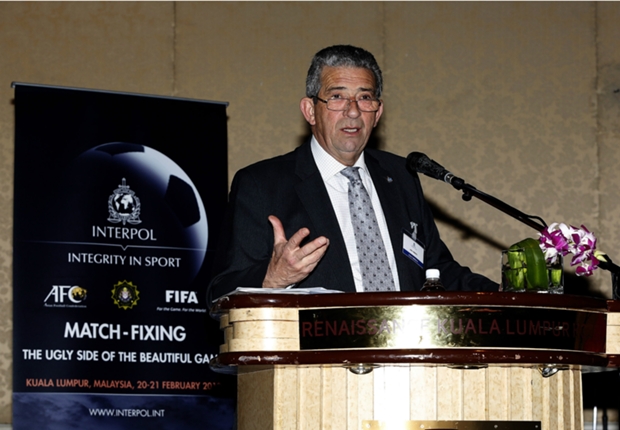- Joined
- Nov 30, 2011
- Messages
- 283
- Points
- 0
Interpol urges football associations to 'get real' on match-fixing

Sep 10, 2014 14:00:30
Steering group chairman John Abbott believes professionals must have contractual clauses to help prevent the spread of the issue within the sport
By Peter Staunton
John Abbott, steering group chairman at Interpol, has urged football authorities to "get real" about match-fixing in the game and called for clauses regarding match-fixing to be written into contracts of players and referees.
At the SoccerEx Global Convention in Manchester, Abbott, along with Mark Sutcliffe, the CEO of the Hong Kong FA, Emanuel Medeiros, the CEO of the International Centre for Sports Security in Europe and Latin America and Darren Small, the director of Sportsradar, outlined problems posed by match-fixing by professional criminals who operate at all levels of football from under-age upwards.
"Sports governing bodies, football associations in this case need to get real about prevention," Abbot said. "This is about education and awareness so that the people involved in the game can recognise, resist and report any match-fixing approaches.
"It's also about making sure that in every player and referee contract there is specific reference to the fact that they have had training and they understand they must not bet and they must not pass information. The time has come for that."
Abbott said that 60-80 countries have reported suspected match-fixing every year for the past three years and described football as "top of the league" for fixing in sport. Players and referees are most at risk to match-fixing approaches from criminal gangs around the world while player agents were also counted among those susceptible to it.
Medeiros lamented the fact that match-fixing is a crime only in five European countries while Sutcliffe said that football associations do not possess the resources or the expertise to be law enforcers.
He described a recent under-16 invitational tournament in Hong Kong where he was informed of suspected match-fixing but the local police could not deal with the matter sufficiently. He also made reference to the upcoming court case involving six players and three officials suspected of fixing a match in January.
Small said that match-fixing is a highly-sophisticated, evolving phenomenon and the panel agreed that a joint-up global approach is necessary to combat "a growing cancer" on the sport.
